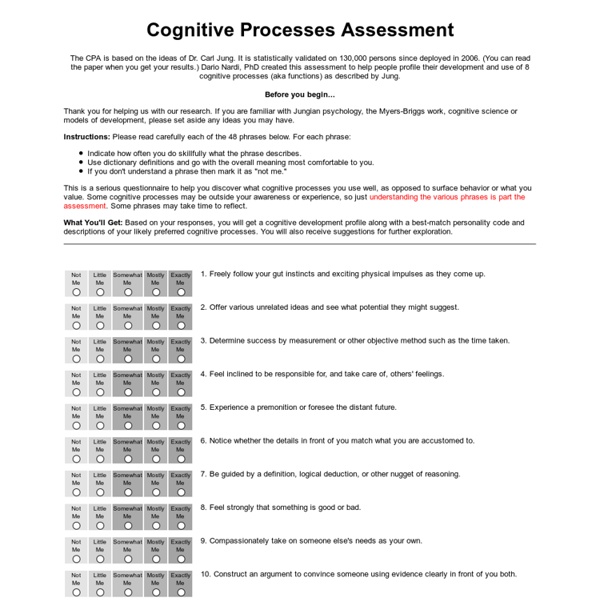Force Carrier Particles Fact File
Physics for Beginners - What are Force Carrier Particles? This hub aims to summarise the facts you should already know about force carrier particles and their interactions. In order for you to apply the facts that follow in this hub, you will need to have already learned about the fundamental particles that comprise our universe. If you haven't already done so or need to recap, see: Fundamental Particles Fact File Four Interactions There are four interactions that occur between particles. ElectromagneticStrongWeakGravity Every force that we know of can be explained with these four fundamental interactions. 2. Strong Force and Colour Charges Strong force holds together the quarks inside baryons (e.g. protons and neutrons) and mesons.Strong force works through the relationship between colour charged particles.The force carrier particles that carry strong force are called gluons.Gluons have colour charge and so do the particles that they affect: quarks and anti-quarks Quarks and Colour Charges
Orkypia, choisir un métier, orientation scolaire et professionnelle,fiches métiers, tchat avec un spécialiste
Standard Model
The Standard Model of particle physics is a theory concerning the electromagnetic, weak, and strong nuclear interactions, as well as classifying all the subatomic particles known. It was developed throughout the latter half of the 20th century, as a collaborative effort of scientists around the world.[1] The current formulation was finalized in the mid-1970s upon experimental confirmation of the existence of quarks. Since then, discoveries of the top quark (1995), the tau neutrino (2000), and more recently the Higgs boson (2013), have given further credence to the Standard Model. Because of its success in explaining a wide variety of experimental results, the Standard Model is sometimes regarded as a "theory of almost everything". Historical background[edit] The Higgs mechanism is believed to give rise to the masses of all the elementary particles in the Standard Model. Overview[edit] Particle content[edit] Fermions[edit] Gauge bosons[edit] Higgs boson[edit] Main article: Higgs boson E.S.
Test d'orientation gratuit - Orientation professionnelle - Lesmetiers
Le test d'orientation lesmetiers.net a été créé par un conseiller d'orientation-psychologue. L'objectif de notre test d'orientation lesmetiers.net est de vous permettre de découvrir vos centres d'intérêt dominants et les métiers qui y sont associés. Il s'agit d'un outil d'aide à l'orientation gratuit destiné à vous accompagner dans la construction de votre projet personnel. Simple et rapide d'utilisation, le test d'orientation lesmetiers.net se présente sous la forme d'un questionnaire exploratoire en 3 parties : "Dans votre métier futur, vous aimeriez..." ; "Dans votre activité future, vous vous verriez bien..." ; "Aimeriez-vous travailler dans ce domaine d'activité ? Notre service vous offre la possibilité d'enregistrer vos résultats afin de pouvoir les consulter à tout moment.
Zero-point energy
Zero-point energy, also called quantum vacuum zero-point energy, is the lowest possible energy that a quantum mechanical physical system may have; it is the energy of its ground state. All quantum mechanical systems undergo fluctuations even in their ground state and have an associated zero-point energy, a consequence of their wave-like nature. The uncertainty principle requires every physical system to have a zero-point energy greater than the minimum of its classical potential well. This results in motion even at absolute zero. For example, liquid helium does not freeze under atmospheric pressure at any temperature because of its zero-point energy. History[edit] In 1900, Max Planck derived the formula for the energy of a single energy radiator, e.g., a vibrating atomic unit:[5] where is Planck's constant, is the frequency, k is Boltzmann's constant, and T is the absolute temperature. According to this expression, an atomic system at absolute zero retains an energy of ½hν. Varieties[edit] .
Studyrama - Fiches Métiers
Vous savez que vous voulez être chargé de projet marketing mais vous aimeriez en savoir plus sur ce métier ? Vous souhaitez travailler dans le secteur de la banque ou du multimédia mais vous ne savez pas précisément sur quel poste ? Vous voulez connaître les différences entre infirmière et aide-soignante ? Vous trouverez ici toutes les réponses à vos questions. Bienvenue sur la rubrique consacrée aux Fiches Métiers. Vous y apprendrez tout ce qu’il faut savoir sur le marché de l’emploi dans une cinquantaine de secteurs : chiffres-clés, perspectives d’embauches, métiers porteurs.
Torus
A torus In geometry, a torus (pl. tori) is a surface of revolution generated by revolving a circle in three-dimensional space about an axis coplanar with the circle. If the axis of revolution does not touch the circle, the surface has a ring shape and is called a ring torus or simply torus if the ring shape is implicit. In topology, a ring torus is homeomorphic to the Cartesian product of two circles: S1 × S1, and the latter is taken to be the definition in that context. The word torus comes from the Latin word meaning cushion.[1] Geometry[edit] A torus is the product of two circles, in this case the red circle is swept around axis defining the pink circle. Ring torus Horn torus Spindle torus Bottom-halves and cross-sections of the three classes A diagram depicting the poloidal (θ) direction, represented by the red arrow, and the toroidal (ζ or φ) direction, represented by the blue arrow. A torus can be defined parametrically by:[2] where r is the radius of the tube. Topology[edit] Flat torus[edit]



